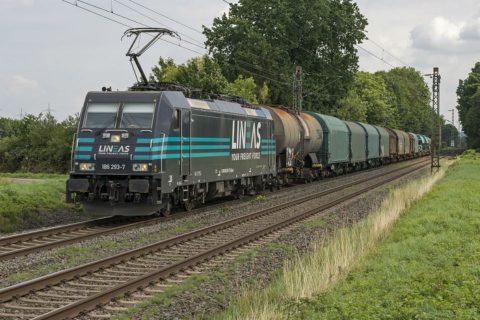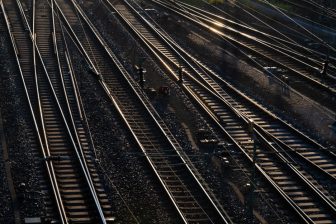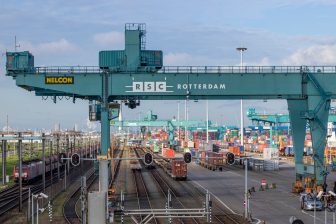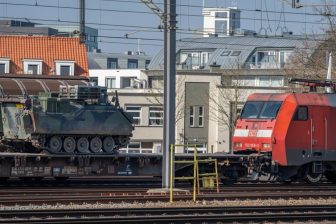
‘Belgium should reduce cost of rail to push modal shift’
Representatives of the Belgian rail freight industry have asked their government to reduce the costs of train paths and transshipment, in order to boost rail freight traffic. Driving a train through Belgium should be as easy as driving a lorry, they stated. They made their pleas in the Belgian Rail Freight Memorandum, which they delivered on Wednesday 20 February.
The memorandum was presented as part of the Rail Freight Forward coalition, a commitment of European rail freight companies to reduce the negative impact of freight transport on the planet. The key objective is a modal share of 30 per cent for rail by 2030. National and EU authorities are called upon to provide a transparent and solid regulatory framework to support this growth.
Reduce track access charges
The Belgian government should take the example of neighbouring countries such as Germany, Austria, Switzerland and the Netherlands. These countries have deliberately radically reduced the costs of train paths, the costs that operators pay for using the railways, the Belgian stakeholders said.
“Railway companies pay for every kilometre they travel on the track,” says Geert Pauwels, CEO of Lineas. “In Germany, they recently halved these costs and this has a direct impact on the competitiveness of the railways.”
Transshipment
Secondly, the government must make it easier and cheaper for companies to opt for rail transport. This can be done by partially reimbursing the costs of transferring lorries to trains as well as the costs for the first and last mile. “Many companies and hauliers want to put more goods on the railways instead of getting stuck in traffic jams with their lorries. If the government compensates some of these handling costs, they will actually do so”, Pauwels added.
Moreover, infrastructure managers should play their part in supporting growth of rail freight volumes, they believe “Infrabel must make driving a train through Belgium as easy as driving a lorry,” said Pauwels. Infrabel must be given the task, the mandate and the resources to roll out and manage a high-quality rail network according to customers’ needs and mobility, the memorandum reads.
Rail freight sector
Apart from these measures, the sector can take certain steps to improve rail freight volumes, they iterated. An important preliminary step is for rail freight operators to continue to focus on innovative solutions that can be competitive with road transport in terms of frequency, reliability, flexibility, price and service. The focus should be on user-friendliness for the customer, the further adoption of new technologies and the further modernisation of the sector, the representatives explained.
The rail freight operators are ready, but are asking those responsible for policy to move on to taking specific action. “We need to convince all Belgians to take the train and cycle more for our planet, but let’s also offer companies a more climate-friendly transport model. It can be done. And it can be done relatively quickly, cheaply and to everyone’s benefit,” is Geert Pauwels’ conclusion.
Modal share
Freight transport accounts for 275 million tonnes of CO2 emissions a year, of which 11 million are in Belgium. In general, freight transport is responsible for almost 10 per cent of the total CO2 emissions. The main reason for this is that 75 per cent of all freight transport goes by road. Road transport has a significantly higher footprint than other modes of transport, in terms of its impact on air pollution and mobility problems as well.
Furthermore, freight transport in Europe is expected to increase by at least 30 per cent by the year 2030. Geert Pauwels, CEO of Lineas, explains: “Without drastic measures, CO2 emissions will increase by a quarter which will make our climate goal of -49 per cent impossible. Air pollution will increase proportionally and soon we will all be stuck in traffic jams permanently. This way, we won’t achieve anything. We need to switch to rail as a matter of urgency.”
Radical change
“We represent a major opportunity for radically reducing the transport sector’s CO2 footprint”, says Geert Pauwels, CEO of the Belgian company Lineas. Doubling rail transport specifically means an increase in the rail share from 18 per cent to 30 per cent in Europe and from 10 per cent to 16 per cent in Belgium.
“This prevents us from adding a million extra lorries to our roads by 2030, 90 thousand of which would be in Belgium”, Pauwels added. “And with that, additional annual emissions of 1.5 million tonnes of CO2 and 2,000 tonnes of particulate matter in Belgium.”





